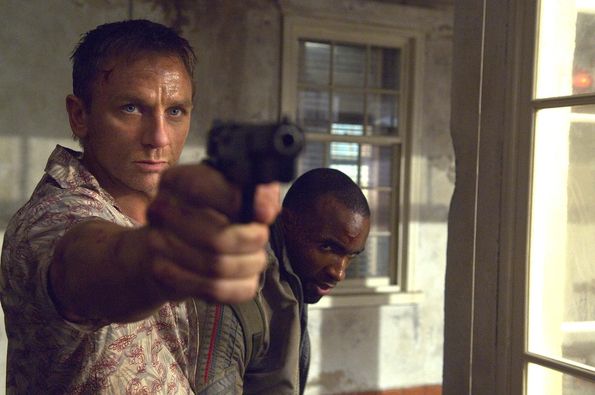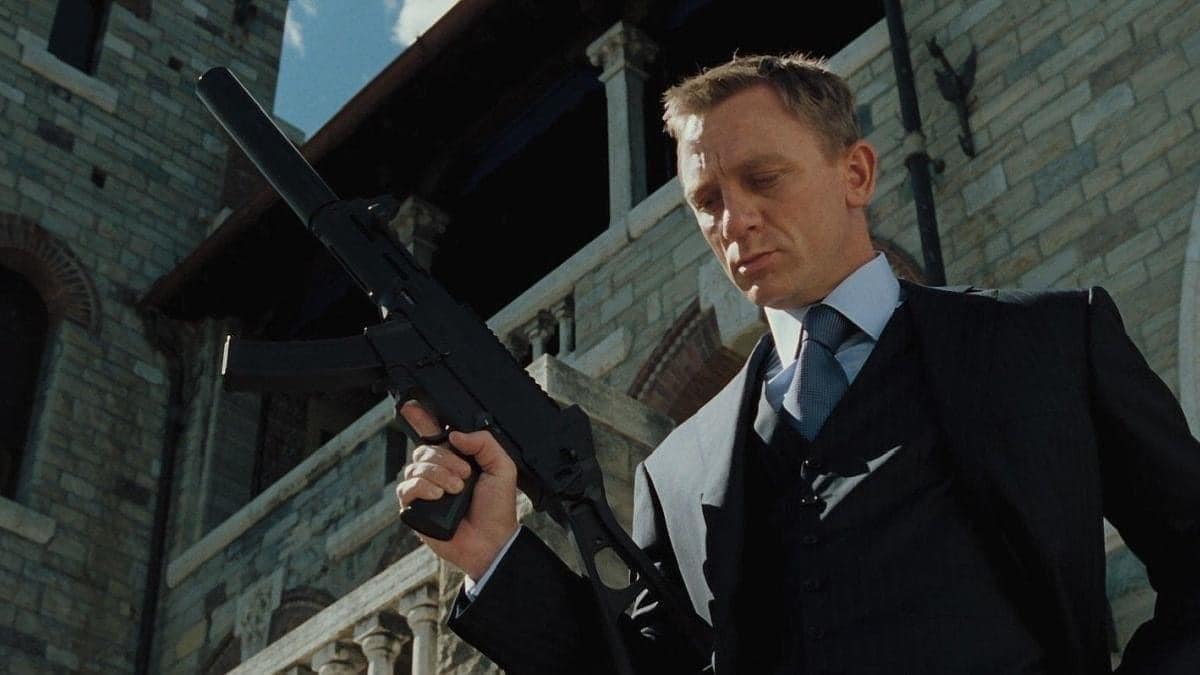Casino Royale (2006)

“Casino Royale,” directed by Martin Campbell and released in 2006, redefines the James Bond franchise with its gritty realism and fresh take on the iconic spy. This film, starring Daniel Craig in his debut as the British secret agent, serves as both a reboot and an origin story, exploring the early days of Bond’s career as a 00 agent.
Plot Summary
“Casino Royale” plunges us into Bond’s world as he embarks on his first mission as a licensed killer. The plot revolves around Bond’s assignment to take down a terrorist financier named Le Chiffre, who is known for his high-stakes poker games and connections to global terror networks. The story unfolds primarily in the luxurious casino of the titular Royale in Montenegro, where Bond must outwit and outplay Le Chiffre in a high-stakes poker game to prevent him from financing further terrorism. The film blends intense action sequences with a psychological battle of wits, setting the stage for Bond’s development from a reckless agent to a more nuanced and emotionally complex character.

Themes and Meaning
- Rebirth of Bond: “Casino Royale” marks a significant departure from the flamboyant, gadget-heavy Bond of previous films. The film’s gritty, realistic approach showcases Bond as a flawed and vulnerable character. Daniel Craig’s portrayal introduces a more grounded and intense Bond, whose physical and emotional struggles reflect a deeper layer of humanity. This reboot focuses on Bond’s evolution, revealing his vulnerabilities and the personal cost of his profession.
- Trust and Betrayal: Central to the film’s narrative is the theme of trust. Bond’s relationship with Vesper Lynd, played by Eva Green, explores the complexity of trust and betrayal. Their romance is intense but ultimately fraught with deception. Vesper’s betrayal profoundly impacts Bond, shaping his future relationships and attitudes. This theme is crucial in understanding Bond’s transition from a more emotionally detached spy to one who carries the weight of personal loss.
- The Nature of Evil: The film also delves into the nature of evil through its antagonist, Le Chiffre. Unlike traditional Bond villains, Le Chiffre is portrayed as a man driven by financial desperation rather than grandiose schemes for world domination. His motivations are rooted in the realistic consequences of his financial failures, adding a layer of authenticity and relatability to his villainy.
- The Price of Duty: Bond’s dedication to his mission often comes at a great personal cost. “Casino Royale” emphasizes the sacrifices required by his profession, not just physically but emotionally. The film captures the isolation and moral ambiguity inherent in Bond’s role, underscoring the personal toll of living a life of espionage and danger.

Conclusion
“Casino Royale” stands out as a seminal entry in the James Bond series, providing a fresh perspective on the legendary spy. Its blend of high-octane action, emotional depth, and thematic complexity establishes it as a modern classic. By exploring Bond’s vulnerabilities, personal relationships, and the true nature of evil, the film enriches the Bond mythology and offers a compelling, contemporary take on one of cinema’s most enduring characters.











